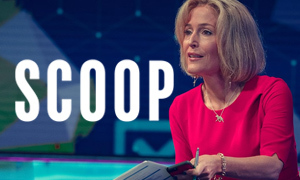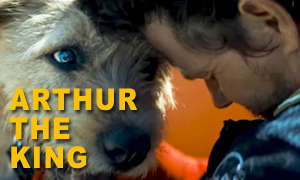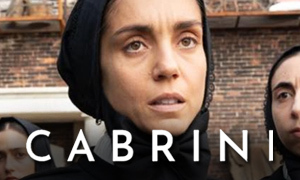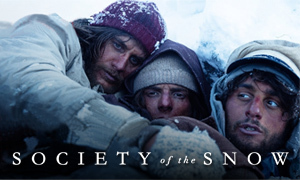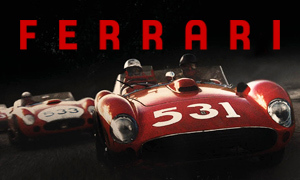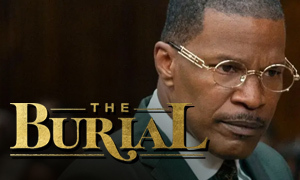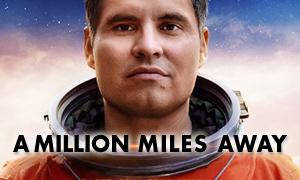Flamin' Hot vs. the True Story of Richard Montanez and Cheetos
Jesse Garcia
Born: December 14, 1982
Birthplace:
Rawlins, Wyoming, USA
Richard Montañez
Born: August 15, 1958
Birthplace: Ontario, California
Tony Shalhoub
Born: October 9, 1953
Birthplace:
Green Bay, Wisconsin, USA
Roger Enrico
Born: November 11, 1944
Birthplace: Chisholm, Minnesota, USA
Death: June 1, 2016, Cayman Islands
How closely is Flamin' Hot based the real Richard Montañez?
Directed by actress Eva Longoria in her first turn behind the camera of a feature film, the movie is based on Richard Montañez's memoir, A Boy, a Burrito and a Cookie: From Janitor to Executive, and tells the story of his pivotal role in the creation of Flamin' Hot Cheetos. However, in May 2021, much of Montañez's self-glorifying success story was debunked by the Los Angeles Times in an article titled "The man who didn't invent Flamin' Hot Cheetos".
The Times investigation discovered that the story that Montañez had been telling since the late 2000s of how he invented Flamin' Hot Cheetos was a lie. According to the article, "more than a dozen former employees, the archival record, and Frito-Lay itself" have stated that Montañez did not create the wildly popular snack. "None of our records show that Richard was involved in any capacity in the Flamin' Hot test market," Frito-Lay told the The Times. "We have interviewed multiple personnel who were involved in the test market, and all of them indicate that Richard was not involved in any capacity in the test market." It was the first time that Frito-Lay had publicly acknowledged that they had conducted their own internal investigation into Richard Montañez's claims.
Frito-Lay continued its statement to The Times, saying, "That doesn't mean we don't celebrate Richard, but the facts do not support the urban legend." The company concluded by stating, "We value Richard's many contributions to our company, especially his insights into Hispanic consumers, but we do not credit the creation of Flamin' Hot Cheetos or any Flamin' Hot products to him."
Did Richard Montañez drop out of school?
Yes, but Richard and the movie seem to exaggerate this a bit. The son of a Mexican immigrant and one of eleven children, he grew up poor in the unincorporated community of Guasti, east of Los Angeles, where the residents provided for their families by picking grapes in the local vineyards. According to his 2021 memoir, he states that he dropped out of school before grade six. However, while conducting our Flamin' Hot fact-check, we discovered that the 1972 Chaffey High School yearbook contradicts his claim, listing him in the freshman class section. He does not appear in local yearbooks after '72. -The Los Angeles Times
Is it true that Richard Montañez rose up from a janitor to become a marketing executive at Frito-Lay?
Yes. Richard was employed by Frito-Lay as a janitor at their Southern California plant in 1976 when he was 18. Internal records at Frito-Lay reveal that by October 1977, he was promoted to machinist operator (The Los Angeles Times). According to CBS Sunday Morning, he eventually climbed his way up the ladder to become a director focused on Hispanic marketing. He retired from Frito-Lay in 2019. Therefore, it's true that he made it from the factory floor to become a suit-wearing executive. This is the version of his story that is mostly undisputed. However, this version lacks the Hollywood spice that he has included since he began telling it publicly in the late 2000s.
Was Richard Montañez working as a janitor when he claims to have pitched Flamin' Hot Cheetos?
No. As stated in the previous question, the Flamin' Hot true story reveals that Richard had been promoted from janitor to machinist operator by October 1977, more than a decade before he claims to have pitched Flamin' Hot Cheetos. However, according to The Los Angeles Times, he has occasionally described himself as working as a janitor when he made the pitch.
Did Richard Montañez work on new product initiatives at Frito-Lay?
Yes. As noted by The Los Angeles Times, Montañez did pitch new product initiatives, which possibly changed the trajectory of his career. It's also true that he worked on other products in the Flamin' Hot line, but as for the wildly popular Flamin' Hot Cheetos, they were created years earlier by a separate team.
A December 1993 U.S. News and World Report article mentions Richard Montañez, then a 37-year-old machine operator at the plant in Rancho Cucamonga, as being the person who developed the concept for Flamin' Hot Popcorn, which was about to make its debut. The spicy popcorn aimed at the Hispanic market hit store shelves in 1994 as an extension of Frito-Lay's Flamin' Hot line of products that had been rolled out by a different team four years earlier.
While analyzing the Flamin' Hot fact vs. fiction, we learned that sometime around 1994, Montañez started working on a line of products targeted at LA's Latino market: Sabrositas. The Sabrositas line included two types of Fritos, Flamin' Hot Popcorn, corn chips in both a Flamin' Hot and Lime and Chile variety, and a flavor of Doritos marketed as "buñuelito-style tortilla chips." They didn't have any mass media campaign to promote the product, so they developed a strategic partnership with Tupperware, where local women would take the product to the parties they hosted. Montañez mentions this in his memoir, but he attributes the Tupperware parties to the launch of Flamin' Hot products, not the Sabrositas line.
Did the real Richard Montañez ever use the line that he has a PhD—he's poor, hungry and determined?
Yes. The line in the movie when Montañez (Jesse Garcia) says, "I know I don't look it, but I got a PhD. I'm poor, hungry and determined," is something that the real Montañez has said when telling his story. In a 2018 interview with The Washington Post, he said, "I have a PhD of being poor, hungry and determined. And I think when you've experienced those three things, there's a lot of wisdom. When you've been poor, there's so much innovation that comes out of that." It's unclear for how long he's been saying that, but the quote in the movie is indeed based on something that the real Richard Montañez said.
Did Richard Montañez pitch his product idea to Frito-Lay CEO Roger Enrico?
In the Flamin' Hot movie, Richard (Jesse Garcia) pitches his idea for Hot Cheetos to Frito-Lay CEO Roger Enrico (portrayed by Tony Shalhoub) and other executives after first cold calling Enrico on the phone. This is how the real Richard Montañez has told the story over and over, including in his new memoir, which recounts a pivotal moment of him pitching his idea in a room of more than 100 people. Sitting before him were the CEO and many other "leading executives." He said this happened in 1991 (CBS Sunday Morning).
There's just one problem. Richard's account is impossible. According to The Los Angeles Times, CEO Roger Enrico was not yet the CEO of Frito-Lay when the Flamin' Hot brand was developed. Enrico didn't assume the reins until early 1991, six months after Flamin' Hot Cheetos had hit the test market. Robert Beeby was still running Frito-Lay in the summer of 1990 when the Flamin' Hot line first hit test markets. This is a major discrepancy in Richard's story.
The real Richard Montañez did respond to Frito-Lay's claims that he wasn't involved in the test markets by telling Variety that he was mostly "pushed out" of that aspect of the product's development. He claims that Frito-Lay sent one scientist to help him with his own test market, but by then, the company had already developed its own version of hot seasoning. A whole team at Frito-Lay had worked on their version of the product, which is eventually what landed on store shelves.
Exactly how many former Frito-Lay employees did The Los Angeles Times interview when investigating Richard Montañez's claims?
The Times tracked down more than 20 former employees during the course of their year-long investigation. 20 of the people they spoke to had worked in the divisions at Frito-Lay that were responsible for new product development at the time that Flamin' Hot Cheetos were created. No one remembers anything even remotely similar to the story that Richard Montañez began telling in the late 2000s.
Ken Lukaska, who was employed as a product manager for the core Cheetos brand at the time that Flamin' Hots were being released nationally, remarked, "If that story existed, believe me, we would have heard about it. This guy should run for office if he's that good at fooling everyone."
Who does Frito-Lay credit with inventing Flamin' Hot Cheetos?
In researching how accurate is Flamin' Hot, we learned that Frito-Lay told NPR that while they don't have a documented record of exactly how Flamin' Hot Cheetos came to be, teams of people are involved in creating a new flavor, so no single individual would get the credit. In the case of Flamin' Hots, they were created by a team beginning in 1989 in the company's corporate offices at their headquarters in Plano, Texas.
The new product was Frito-Lay's response to the success of the spicy snacks that were flying off the shelves of the urban mini-marts of the Midwest, including in Chicago and Detroit. A March 1992 newspaper article from the Dallas Morning News confirms this. A Frito-Lay spokesperson told the paper that "our sales group in the northern United States asked for them." According to The Los Angeles Times, one of those individuals was Chicago-based Frito-Lay salesman Fred Lindsay, who repeatedly petitioned the marketing department for hot stuff after witnessing spicy snacks from regional competitors fly off the shelf.
In response, Lynne Greenfeld, an employee at Frito-Lay's corporate office in Texas, was the person assigned to develop the Flamin' Hot brand in 1989. According to Frito-Lay's records, the Flamin' Hot seasoning was developed by McCormick, their longtime seasoning supplier. Initial samples of the seasoning were sent to Frito-Lay on December 15, 1989. The Times reports that it was Greenfeld who came up with the Flamin' Hot name and was instrumental in getting the product to markets across America. It shouldn't come as a surprise then that Greenfeld was the person who reached out to Frito-Lay in 2018 after she read a blog post that summer on Esquire's website that recounted Richard Montañez's story. This prompted Frito-Lay to conduct an internal investigation, which concluded that Montañez did not invent Flamin' Hot Cheetos.
"It is disappointing that 20 years later, someone who played no role in this project would begin to claim our experience as his own and then personally profit from it," Greenfeld told The Times.
Montañez responded by telling Variety that he never heard of Lynne Greenfeld, noting that they did not work in the same division of the company. According to Montañez, Frito-Lay had five divisions back then. "I don't know what the other parts of the country, the other divisions — I don't know what they were doing," he said. "I'm not even going to try to dispute that lady, because I don't know. All I can tell you is what I did. All I have is my history, what I did in my kitchen."
Has Richard Montañez responded to The Los Angeles Times' allegations that he lied about inventing Flamin' Hot Cheetos?
Yes. Montañez has disputed the claims made by The Times. "I was their greatest ambassador," he told Variety of his former employer, Frito-Lay. "But I will say this, you're going to love your company more than they will ever love you, keep that in perspective." Montañez asserts that he began pitching ideas for new products to Frito-Lay in the late 1980s, while he was employed as a janitor at the company. He said that Frito-Lay had a special program called the method-improvement program, which gave employees the chance to submit new ideas for different products and flavors.
"The only difference in what I did, is I made the product, instead of just writing the idea on a piece of paper and sending it," says Montañez, referring to when he allegedly created the concept for Hot Cheetos in his kitchen using plain Cheetos he brought home from the Rancho Cucamonga plant. "They would forward over those [concept] products to the appropriate people and I didn't know, because I was just a frontline worker." He says that he was pushed out of the process due to the fact that it wasn't his department and he was low on the totem pole at the company. He told Variety that he believes that his low status at the company at the time might also be the reason why Frito-Lay didn't document his efforts.
Steven Montañez, Richard Montañez's representative, told NPR, "The recipe and the flavors that Richard came up with, of course when they were ready to get mass produced, Frito-Lay tweaked them and did whatever they needed to do to get them market ready. But Richard never got to be part of it because his position had nothing to do with it. He wasn't a marketer, he wasn't in R&D, he wasn't in sales — he was a general utility machine operator, which is a janitor." His representative is attempting to equate a machine operator to a janitor, which are clearly different positions. We know from The Times research that Richard had been promoted from janitor to machinist operator by October 1977.
Montañez told Variety that he's "not concerned" about the Flamin' Hot movie being affected by the findings of Frito-Lay's internal investigation. "I think that [the movie is] going to inspire people to do the right thing," he says. "Don't make the mistake Montañez made. Document everything. The story isn't really about Hot Cheetos. The story is about overcoming adversity and racial discrimination."
Hours after The Times story was published on May 16, 2021, Richard Montañez posted the following response to his Instagram account @hotcheetosrpm, which he appears to have since deleted:
I don't care what room you're in, there's always somebody in the room that's going to try to steal your destiny. They may even say you never existed. I want you to do this: Write down your history, because if you don't, somebody else will. Remember that. And also remember this, the best way to destroy a positive message is to destroy the messenger. Never allow that to happen to you. I'm certainly not going to allow it to happen to me.
Why did director Eva Longoria proceed with the movie after Frito-Lay had contacted the producers in 2019 and told them Richard Montañez's story wasn't true?
A May 4, 2021 Variety article announcing the lead cast for the film quotes director Eva Longoria as saying, "My biggest priority is to make sure we are telling Richard Montañez's story authentically." Two weeks later, Sam Dean's Los Angeles Times article was published on May 16, 2021. The article, which was the culmination of a year-long investigation by Dean, made a convincing case that Montañez didn't invent Flamin' Hot Cheetos.
At that point, director Eva Longoria's Flamin' Hot movie was already in development. However, The Times article notes that Frito-Lay had informed the film's producers, DeVon Franklin and FOX Searchlight, of the findings of their internal investigation in 2019, but the producers decided to move forward anyway. It's unclear whether the information was shared with Longoria. Speaking to The Los Angeles Times at the SXSW Film Festival in Austin in March 2023, Longoria defended her decision by saying, "We never set out to tell the history of the Cheeto. We are telling Richard Montañez's story and we're telling his truth." It's a rather incredible statement but one that is heard often in today's society. Your "truth" can be whatever you want it to be, even if it's not based in reality.
Instead of expressing concern that Richard might have propagated a lie (according to the findings of The Times investigation), Longoria has simply reframed the alleged lie as "Richard's truth." A Flamin' Hot fact-check reveals that he's been sharing "his truth" publicly since 2007. He's found success as a charismatic public speaker, recounting his rags-to-riches story at events for Walmart, Target, USC and Harvard, to name a few, commanding fees of $10,000 to $50,000 per engagement (The Los Angeles Times). In June 2021, he released a second memoir, also titled Flamin' Hot. His biopic was sold to FOX Searchlight after a bidding war. If much of his story is in fact not true, he's made a considerable amount of money duping the public into believing his lie.
Despite the explosive revelations that The Times uncovered about Richard Montañez's story, Disney has still chosen to promote the Flamin' Hot movie as being "inspired by a true story." The film will undoubtedly take Richard's tale to a whole new level, but what message is it sending to young viewers, especially those who do a quick Google search on the real Richard Montañez?
Responding to the release of The Times article, Flamin' Hot screenwriter Lewis Colick (October Sky) told Variety, "I think enough of the story is true. ... Did Richard embellish a little bit? Was his memory faulty here or there? Who knows. ... We're not in the documentary business. ... I always stand behind the essence of the story." However, does this include when new information comes to light after the screenplay has already been written, information that significantly changes what had previously been considered factual?
Does Frito-Lay still stand by its statement calling Richard Montañez's story an "urban legend"?
Days after The Los Angeles Times article was published on May 16, 2021, PepsiCo, Frito-Lay's parent company, released a statement claiming that their earlier comments were being "misconstrued." However, they didn't challenge any of the facts revealed in The Times article. Instead, their new statement seemed to have been mostly prompted by a concern that they had put a strain on their "valued friendship with Richard Montañez and the Latino community." They attempted to back-peddle and distance themselves from their own internal investigation that concluded that Richard Montañez did not create Flamin' Hot Cheetos. Their new statement read in part:
Far from being an urban legend, Richard had a remarkable 40-plus-year career at PepsiCo and made an incredible impact on our business and employees and continues to serve as an inspiration today. His insights and ideas on how to better serve Hispanic consumers were invaluable and directly resulted in the success of Flamin' Hot Cheetos. To be clear, we have no reason to doubt the stories he shares about taking the initiative to create new product ideas for the Cheetos brand, and pitching them to past PepsiCo leaders.
They acknowledged that a separate division team developed Flamin' Hot Cheetos and the initial Flamin' Hot line of products but emphasized that it's possible that Richard could have been working on his own spicy version of Cheetos as well:
Different work streams tackling the same product without interacting occasionally occurred in the past when divisions operated independently and were not the best at communicating. However, just because we can't draw a clear link between them, doesn't mean we don't embrace all of their contributions and ingenuity, including Richard's.
They stressed that the launch and success of Flamin' Hot Cheetos was a team effort and pointed out that Richard was a part of that:
The sincere truth is, at PepsiCo, we believe in the strength and power of teams, and we attribute the launch and success of Flamin' Hot Cheetos and other products to several people who worked at PepsiCo, including Richard Montañez.
Richard told ABC News that he was "satisfied" with PepsiCo's new statement and "very thankful for them trying to clarify everything."
Does Richard Montañez agree with PepsiCo that the creation of Flamin' Hot Cheetos was a team effort?
No. In 2022, he told CBS Sunday Morning, "[PepsiCo] would even tell me, 'Richard, in your speeches, you need to say it was a team effort.' But in reality, it never was. If you wanna go ahead and say it was a team effort, I'll give you that, you know, but, in my heart, it had nothing to do with a team."
Overall, how accurate is Flamin' Hot?
If the evidence presented in The Los Angeles Times article is indeed correct (and we have little reason to believe that it's not), then it isn't a stretch to call the Flamin' Hot movie a lie, or in the least, a gross embellishment of Montañez's actual rags-to-riches story. There was a time not too long ago when Sam Dean's 2021 article debunking Richard Montañez's claim that he invented Flamin' Hot Cheetos would have led to public condemnation of Montañez. In the least, the Flamin' Hot movie would not still be marketed as being inspired by real-life story, if it wasn't shelved altogether. Perhaps the biggest question is why Disney, the filmmakers, and many in the media are okay with promoting the apparent lie that is baked into the movie Flamin' Hot.
Sure, there have been other memoirs and biopics that have fallen under scrutiny for their false claims. Who can forget the scandal around James Frey and his 2006 memoir of addiction and recovery A Million Little Pieces, an author Oprah had selected for her book club and promoted on her show. When it was revealed that some of his bigger claims in the memoir were embellished, Oprah publicly shamed Frey on live television. "I feel duped," she said on her hugely popular syndicated talk show. "But more importantly, I feel that you betrayed millions of readers."
So what's the difference with Richard Montañez's story? Why is Montañez's alleged tall tale largely allowed to stand as "fact" in 2023, aside from articles like this one addressing it? Perhaps the answers to these questions reveal a deeper and more troubling commentary about the current state of our society, or perhaps it's as simple as FOX Searchlight and Disney figuring most people won't bother to look up the facts behind the movie. However, the latter hardly seems to be a believable explanation for why this controversial rags-to-riches tale is still largely being given a pass.
A far more interesting movie would have been one that told what seems to be the Richard Montañez true story; how a plant worker rose up to become a marketing executive at Frito-Lay, who years later attempted to spice up and repackage his own story with a lie in order to sell it and become famous. That's a story many would still want to consume, one about the internal struggles between right and wrong that tug at us all, and the benefits and ultimate pitfalls of giving in to the latter. Instead, we're still being served the alleged fable that Montañez wanted us all to devour like the famous snack he claimed to have created. Yet, upon learning the other side of the story, we can't help but walk away from the movie with a bit of indigestion.
